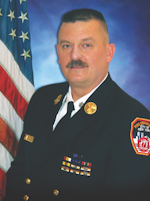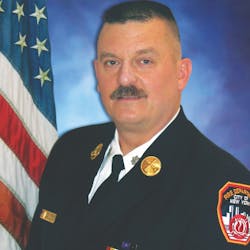Every once in a while, and sometimes more frequently than that, a new fire chief arrives at a department. Sometimes, this is an expected change, such as in the case of a long-time career chief announcing a retirement date and then retiring. It could be a volunteer fire chief who completes a several-year stint as chief and steps aside as required by law or policy, for the assistant chief to be promoted to chief. A less desirable circumstance could be a sudden resignation or a death, but the resulting situation is similar.
What should a “new” fire chief consider upon taking the helm of the department?
The first assumption that must be discarded is that everything is in order because the chief that just left was a great organizer and administrator. Maybe yes, and maybe no.
The new chief should do a top-to-bottom review of everything starting on Day One. This shouldn’t be at the exclusion of everything else, but this task must be at the top of the to-do list.
What items are fall under this review?
Apparatus
Are the department’s apparatus fit for duty?
Many items must be looked at concerning fire apparatus. Is every seat and riding position equipped with a seat belt? Do all of the features and capabilities of the apparatus, such as the pump on engines and the aerial device on trucks, work properly? Have all of the apparatus been inspected, just as every other vehicle on the road is? Are the tires in good shape? Have they aged out? Are all of the rigs in good mechanical condition, particularly the brakes, transmission, lights and windshield wipers?
This isn’t a complete list but instead is a great starting point.
Equipment
Do the crews have adequate, modern, and working tools and equipment. This includes firefighting equipment, rescue tools, EMS equipment and other tactical tools, such as power saws, foam eductors, generators, extrication tools, portable pumps and fans. Hand tools, such as axes and Halligans, pry bars, hooks, and pike poles and mauls, all must be available, in good shape and ready to use.
Training
Training is vital to any department’s successful performance, and it must be conducted regularly and supervised by several levels of command.
Career departments should require every company to conduct daily training. Volunteer companies, at a minimum, should hold a training event every week.
If the company officer conducts the training, the next rank—for example, a battalion chief—should have some supervisory responsibility for the activity.
The department should provide training equipment and established tactics and procedures to train all personnel to the expected levels of performance.
Officers
Take a look at the officers who lead the companies and the department. Are all of them performing well and providing effective leadership abilities in their units? Are the company officers in field units, such as engine and ladder companies, effective in their supervisory and operational roles? Do any company officers need to be reassigned or otherwise moved to provide more effective supervision in specific areas? Does the evaluation of all company officers reflect excellence and positive attitudes?
Facilities
What is the condition of the department’s facilities? Are the firehouses in excellent condition? Are all of the mechanical, electrical and other features of all of the department buildings safe and modern and working properly? (Even older buildings can be maintained in excellent condition.) Are apparatus exhaust systems installed and working properly? Are the areas that are occupied by firefighters maintained, so they are free of apparatus exhaust?
PPE
Is the PPE that’s worn by firefighters up to date, approved, in excellent condition and maintained by the department? Is washing and drying equipment provided in the firehouse or otherwise conducted by the department? Are there adequate supplies of hoods and gloves immediately available to firefighters? Is every firefighter equipped with a radio and trained to operate it?
It’s your obligation
The new fire chief, the person who is responsible for all of this and much more, must begin to examine all of these items immediately upon taking the oath of office. Not only your personnel but the citizens of your community depend on you.
Congratulations on your new position. Now get to work!

John J. Salka Jr. | Battalion Chief
JOHN J. SALKA JR., who is a Firehouse contributing editor, retired as a battalion chief with FDNY, serving as commander of the 18th battalion in the Bronx. Salka has instructed at several FDNY training programs, including the department’s Probationary Firefighters School, Captains Management Program and Battalion Chiefs Command Course. He conducts training programs at national and local conferences and has been recognized for his firefighter survival course, “Get Out Alive.” Salka co-authored the FDNY Engine Company Operations manual and wrote the book "First In, Last Out–Leadership Lessons From the New York Fire Department." He also operates Fire Command Training, which is a New York-based fire service training and consulting firm.






